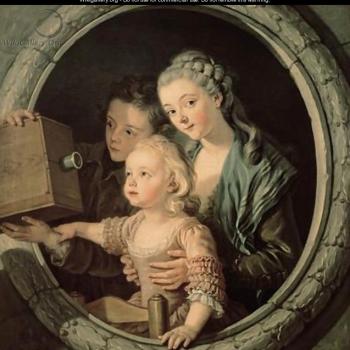 Jenee Woodard
Jenee Woodard
"Incarnation" matters to me precisely because it's messy. God's presence in "meat" keeps me working in and with people and places (including myself!) where I'd give up if I hadn't seen God in weird places before. "Incarnation" messes up my tidy lines and categories, including those of divine and human, and keeps me always guessing and watching, carefully. It keeps me from quickly discounting things and people, (even in the name of charity to them!) and from expecting or endorsing some unattainable "perfection," in myself or in others. Whatever "it" is, it's going to be messy.
Jenee Woodard is the author of The Text This Week, a resource site for study and liturgy based on the 3-year Revised Common Lectionary cycle.
 Elaine Heath
Elaine Heath
The Incarnation is a constant subversion of power and privilege in religious leadership. The Incarnation confronts us with a God who comes to us naked and vulnerable, to live among us and express the divine love as a faithful neighbor. What does it mean to truly worship this kind of God? It means showing up and paying attention to our actual neighbors, and loving them in ways that matter to them. It means forgoing all privilege and power as we journey with others to heaven. It means a daily surrender of ego. Bethlehem. Egypt. Nazareth. Golgotha. Empty tomb. Love incarnate.
Elaine Heath is an ordained United Methodist minister and the Associate Professor of Evangelism at Southern Methodist University. She blogs at her Patheos Expert site here.
 Ruth Everhart
Ruth Everhart
Ask the One unbound by space, unconstrained by time.
Ask the One unreached by the laws of physics.
Ask the Ruler of galaxies, the Impulse behind creative thought.
Why enter space and time?
Why this particular planet, this occupied country, this backwater town?
Why take on form and shape? Why become matter at all?
Robed in homespun, yes, and beneath the swaddling bands
clothed in this most surprising substance, human flesh. So easily sullied.
Why subject Oneself to this decomposable fate?
Was it just so we could have a tête-à-tête?
Ruth Everhart is a Presbyterian minister, writer, mother, and sometimes-pilgrim. She blogs at Work-in-Progress.
 Sam Alexander
Sam Alexander
Incarnation is about God's creative work in the world. But when I say "God," and this is key, I specifically do not mean some entity sitting high atop the thing, doling out love and judgment according to His inscrutable purpose. That idea has done enough damage. No, this story is about a different God, a God who is with us. But NOT in the sense that God dropped by to be with one child. That would make Jesus superhuman. I'm not buying it. Jesus is not special, or superhuman; he is paradigmatic. And that means this story is about you.
Sam Alexander is Pastor of First Presbyterian Church in San Rafael, CA and is Adjunct Professor of Homiletics at San Francisco Theological Seminary. He blogs at his Patheos Expert Site here.
 Lisa M. Hess
Lisa M. Hess
The Incarnation awakens weary, human spirit-minds to the scandalous grace of creation and audacity required to participate fully within it. In patristic Christianity, for example, Athanasius of Alexandria (circa 300-373 C.E.) touted the startling phrase, "God became man, so that man might become God." This was not to blaspheme against the Holy One of Israel but to share the mind-blowing good news that awakening unto utter joy amidst suffering is possible. Not only possible but intended and desired as true humanity for all. "Repent and hear the Good News. The kingdom of God is at hand." Here. Today. For all.
The Rev. Dr. Lisa M. Hess listens, teaches, and writes as a Presbyterian minister (PCUSA) and practical theology professor at United Theological Seminary in Dayton, Ohio. She blogs at her Patheos Expert site here.




